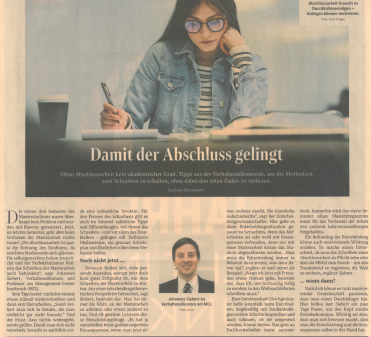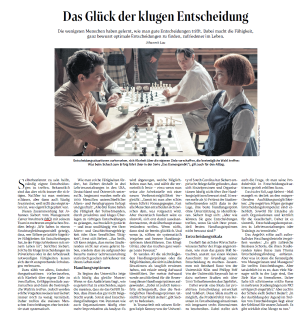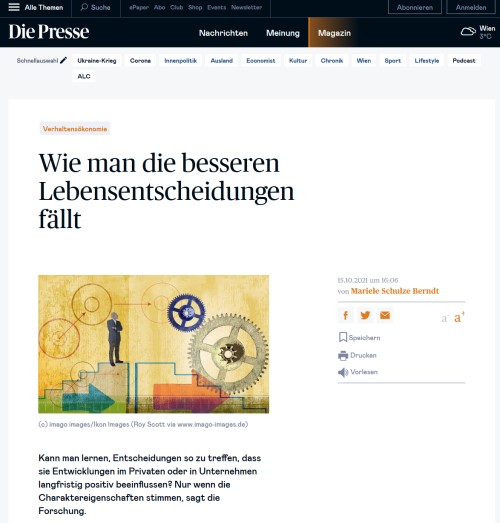Very few people have learned how to make good decisions. Yet the ability to consciously find optimal decisions makes people happier in life. In the Standard, I explain how people can train themselves to make better decisions and, as a result, be more satisfied with their lives.
Being self-determined means constantly making your own decisions. As we all know, these are not always the right ones. Afterwards, one is usually smarter, but then also often more frustrated, because what was actually planned did not occur. Johannes Siebert from the Management Center Innsbruck (MCI) and his team have proven this connection in several empirical studies: “We have shown in a structural equation model that those who have higher proactive cognitive abilities for decision-making are subsequently more satisfied with their lives,” Siebert reports. Such skills, which are necessary for making wise decisions in private life or at work, can be improved through appropriate training….
The full article by Johannes Lau can be found here.
References
Siebert, Johannes U., Becker, Maxi; Oeser, Nadine. “Making the right career choice: A new educational tool to train decision-making proactivity in high school students” (Decision Sciences Journal for Innovative Education), https://onlinelibrary.wiley.com/doi/10.1111/dsji.12280
Siebert, Johannes U.; Kunz, Reinhard, Rolf, Philipp. “Effects of decision training on individuals’ decision-making proactivity”, European Journal of Operational Research, 294 (1) 2021, 264-282 https://doi.org/10.1016/j.ejor.2021.01.010
Siebert, Johannes U.; Kunz, Reinhard, Rolf, Philipp. “Effects of Proactive Decision Making on Life Satisfaction”, European Journal of Operational Research, 280(1) 2020, 1171-1187, doi.org/10.1016/j.ejor.2019.08.0111
Siebert, Johannes U.; Kunz, Reinhard. “Developing and Validating the Multidimensional Proactive Decision-Making Scale”. Special Issue „Behavioral Operations Research“ in European Journal of Operational Research, 249(3) 2016, 864-877.dx.doi.org/10.1016/j.ejor.2015.06.066




